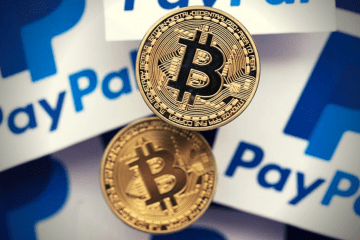Crypto Crime Cartel: Bye Bye Binance?
Following the massive indictments against BitMEX and its co-founders including Arthur Hayes for facilitating money laundering on their platform, here is an article exposing a cartel of crime among exchanges and other digital asset institutions. Consequently, cryptocurrency exchange Binance and Changpeng Zhao also known as CZ is a natural next step—both for our Crypto Crime Cartel coverage and for law enforcement.
We will continue to expose the criminal element within the digital asset community which is standing in the way of mass adoption and attempting to drag us into a regulatory dark age where not only are terrorists, paedophiles and drug dealers free to conduct their business within the ecosystem with impunity, but also where law enforcement is powerless to stop them.
Binance has much in common with BitMEX
To start with, there’s very little in the BitMEX indictments that couldn’t be said against Binance.
The charges against BitMEX’s founders were brought under the Bank Secrecy Act, which is intended to prevent money laundering and ensure that banks and financial institutions take steps to ensure they are not being used to facilitate it. The BitMEX founders are staring down the barrel of a federal prison sentence because they chose not to take any action at all to prevent the money laundering taking place on its platform, so how worried should Binance be?
You can test Binance’s attitude toward money laundering yourself right now by opening an account and seeing how many barriers stand between you and being able to deposit, trade and withdraw on their platform. If you don’t want to do that, we can tell you now: there aren’t any.
Dr. Craig Wright tested this for himself earlier this year. He was able to set up multiple accounts using nothing but a name, a date of birth, and an email address and make a joke of the platform’s 2 BTC withdrawal limit for non-verified users.
No surprise, then, that a report published by Chainalysis in January 2020 tracked the movement of $2.8 billion worth of criminal BTC in 2019 to see where it ended up, and found that a staggering 27.5% of that $2.8 billion ended up with Binance—making them the single biggest recipient of illegal BTC in 2019.
Of course, this only represents one piece of the overall activity on Binance’s platform, but that is the point on money laundering. The U.S. courts, in trying RICO prosecutions, also recognize that when looking at racketeering activity by an organisation—such as facilitating money laundering—it is to be expected that the illegal activity can be punctuated by extended periods of legitimate business.
Binance’s smokescreen reveals intentional criminality
A big part of the BitMEX indictments is spent slamming the founders for intentionally setting up their company in the Seychelles in a poor attempt to escape the reach of U.S. authorities. The indictments make it clear that U.S. prosecutors view this as evidence of wilful evasion of the U.S.’ anti-money laundering enforcement.
Binance has a history of repeatedly moving shop in order to stay ahead of broadening regulatory regimes: they were originally established in China before moving to Japan in anticipation of China’s crackdown on digital asset exchanges, and have become increasingly secretive since then.
Changpeng Zhao has in the past bragged that Binance doesn’t have an office ‘because Bitcoin doesn’t have an office’ and won’t admit where he himself works from. That is an interesting but unsurprising position for the head of a money washing machine to take—but we now know the view the U.S. government is likely to take of such a charade. Organizations also have to pay tax somewhere, Changpeng—so if we are to take you at your word, shall we add tax evasion to the charge sheet?
Whatever protection CZ thinks he’s getting by being coy, he’s in for a rude awakening when the U.S. government (or any government, for that matter) moves onto the next target in its battle against the widespread crime being facilitated or actively organised by these outfits. Not only will law enforcement be undeterred by Binance’s geographical game of cat-and-mouse, but they will see it as intentional evasion of their anti-money laundering obligations, as was the case for BitMEX.
In fact, this practice has not gone unnoticed internationally. The Financial Action Task Force (FATF), an intergovernmental organisation aimed at tackling global money laundering and terrorist financing, published a report on the money laundering risk in the digital asset industry. It provided a number of case studies, one of which was used to illustrate the practice of companies jumping between jurisdictions to stay ahead of local regulations. Though anonymized, the description of the company in question matches up with Binance perfectly.
Not that we need to wait for prosecutors to drop the hammer on Binance. They’re already being sued in California for facilitating theft and money laundering. That suit is brought by the Japanese digital asset exchange Fisco, who say that 6,000 BTC were stolen from them which were then washed through Binance. Binance’s pitiful withdrawal limits certainly weren’t effective here, as the thieves were allegedly able to break the stolen BTC into thousands of transactions and accounts, keeping themselves within the 2 BTC limit and moving the value to other platforms.
Both in the incoming prosecutions and in Fisco’s civil suit (the first of many as more details of Binance’s corruption are revealed), Binance will try to argue that they are not based in the United States and don’t offer their services to U.S. customers, and therefore are perfectly entitled to scam and defraud U.S. citizens. The courts have shown very little patience for this line of argument, and the U.S. is not shy about claiming far-reaching extraterritorial jurisdiction.
Generally, if an exchange like Binance is servicing customers based in the United States, that is all the courts need to accept law enforcement action. This is especially true in the case of Binance, whose top executives reside in the U.S. and whose business is carried on using likely California-based cloud based data centers. U.S. agencies have also made clear that they will consider activity taking place on .com websites as subject to their jurisdiction—see the slate of prosecutions that have been secured against, for instance, non-U.S. citizens hosting copyrighted material on .com domains. As if that wasn’t enough, the U.S. also claims jurisdiction over transactions which are denominated in U.S. dollars—see the successful enforcement cases against EU banks by U.S. agencies.
Binance’s time is coming
I pointed out in our Crypto Crime Cartel coverage of the BitMEX indictments that a clear sign that your organization is involved in criminal activity is whether or not they are attacking the pro-regulation, anti-crime approach of Dr. Wright and Bitcoin SV. That model holds here.
Binance was one of the exchanges who collaborated with Roger Ver (who happens to be among the first investors in Binance) in taking the extraordinary step of delisting BSV at a time when it was a top-five asset in terms of market capitalization.
Ver-backed exchanges Kraken and Shapeshift were the other two in the criminal cabal that delisted BSV, and undoubtedly had a hand in Binance’s decision to delist. Were Binance not intentionally operating in the shadows to obfuscate its structure and headquarters, would anyone be surprised to see Ver on the board at Binance?
Changpeng doesn’t even pretend that the move was based on anything other than ideology, admitting to Cointelegraph that months after the delisting, he still had not bothered to look at the Bitcoin SV codebase and couldn’t say whether or not the platform was useful.
And why should Changpeng care whether Bitcoin SV is useful? It isn’t useful to criminals, and the regulation friendly and compliant Bitcoin SV ecosystem is building a world where Binance’s $770,000,000 in laundered money is never permitted, and where the people who facilitate and profit off crimes of that kind are locked up.
However, with Binance and CZ, we already have Bank Secrecy Act violations the kind of which caused BitMEX and Arthur Hayes to be indicted, and it is only a matter of time before prosecutors invoke the RICO Act in relation to these exchanges and all of their employees’ intentional and unintentionally facilitation of money laundering and who knows how much adjacent crime.
Changpeng might be the face of Binance, but as we have seen with BitMEX and other members of the Crypto Crime Cartel, everyone employed by organizations who commit crime and facilitate the crimes of others should be prepared for indictments of their own. RICO can and will be used to imprison employees—from the bottom of any organisation to the top —who are carrying out their employer’s criminal enterprise. If you are working for Binance, please remember: in prosecuting under the RICO Act, the U.S. Department of Justice is concerned with the actions of individuals, not collectives. No matter where you sit in Binance’s hierarchy, you will not be able to hide behind your employer.
And if there was any remaining doubt, if you still feel safe carrying on Binance’s criminal enterprise from an overseas office—you may never have even set foot in the U.S.—the now-former FBI director James Comey has some choice words for you:
“If you touch our shores with your corrupt enterprise, whether that is through meetings or through using our world class financial system, you will be held accountable for that corruption.”
Source: coingeek.com


